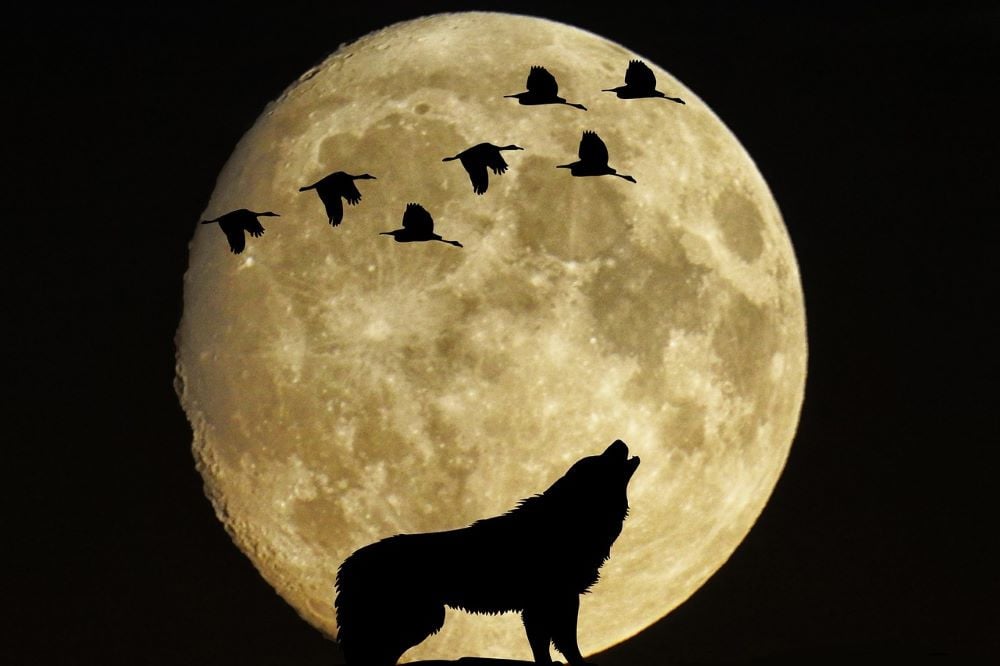
Wolf Moon to light up skies in North America tonight
The first full moon of 2025, known as the "Wolf Moon," is set to rise on January 13, marking the beginning of the year’s lunar cycle. Why Is It Called the Wolf Moon? The Wolf Moon gets its name from the notion that wolves' howls were more likely to be heard during the long, cold winter nights. While the name is steeped in tradition, experts say wolves are not howling at the moon itself. Instead, their vocalizations help to locate pack members and reinforce social bonds. When Can You See the Wolf Moon? The full Wolf Moon will reach its peak illumination at 5:27 p.m. EST on January 13. However, the moon will appear bright and full for three days, from Sunday evening through Wednesday morning. To view it, look to the eastern horizon around sunset. By midnight, the Wolf Moon will be high in the sky before disappearing in the west at sunrise. A Special Celestial Event On the night of the full moon, the Wolf Moon will pass in front of Mars, making it visible across much of the continental United States, according to NASA. What's Next? After the Wolf Moon, the next full moon will occur on February 12, bringing the "Snow Moon."

The first full moon of 2025, known as the "Wolf Moon," is set to rise on January 13, marking the beginning of the year’s lunar cycle. Why Is It Called the Wolf Moon? The Wolf Moon gets its name from the notion that wolves' howls were more likely to be heard during the long, cold winter nights. While the name is steeped in tradition, experts say wolves are not howling at the moon itself. Instead, their vocalizations help to locate pack members and reinforce social bonds. When Can You See the Wolf Moon? The full Wolf Moon will reach its peak illumination at 5:27 p.m. EST on January 13. However, the moon will appear bright and full for three days, from Sunday evening through Wednesday morning. To view it, look to the eastern horizon around sunset. By midnight, the Wolf Moon will be high in the sky before disappearing in the west at sunrise. A Special Celestial Event On the night of the full moon, the Wolf Moon will pass in front of Mars, making it visible across much of the continental United States, according to NASA. What's Next? After the Wolf Moon, the next full moon will occur on February 12, bringing the "Snow Moon."
